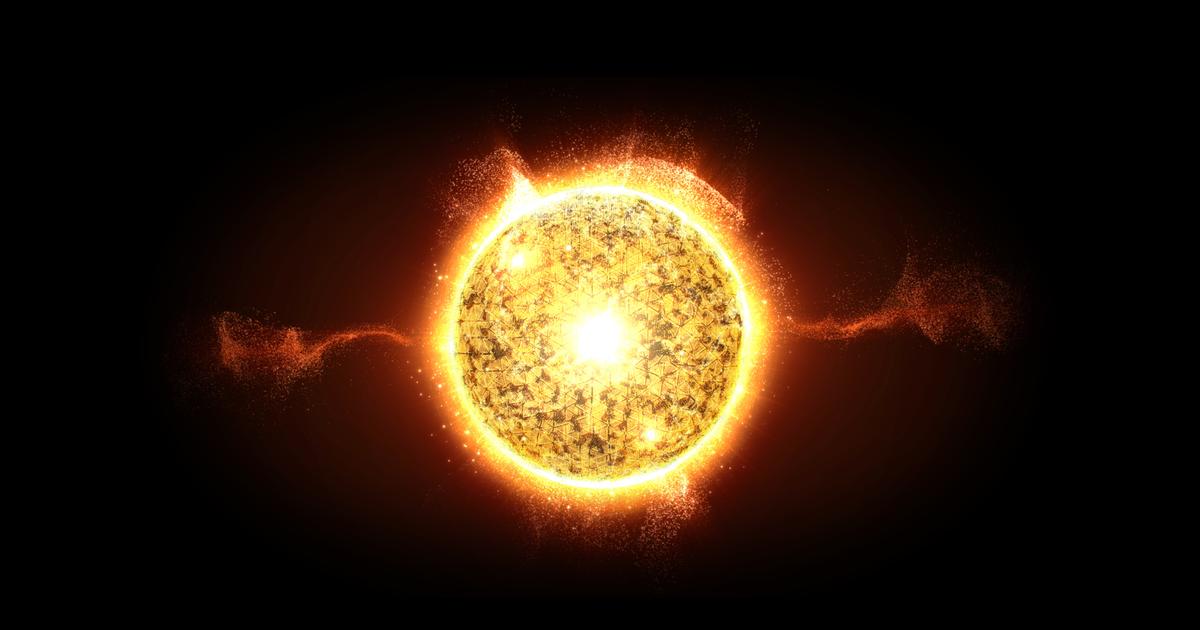Dr Laurent Alexandre is a surgeon-urologist, co-founder of the Doctissimo website. Latest book published:
Enjoy youth!
(ed. Lattes, 2020).
LE FIGARO. - The Lawrence Livermore National Laboratory in the United States announced on Tuesday a "major scientific breakthrough" in the field of nuclear fusion. What is it concretely?
Laurent ALEXANDRE. -
There are two ways to produce energy from nuclear.
The classic method is fission, which consists of breaking uranium atoms in traditional nuclear reactors, of which there are 56 in France.
The second method, on which this laboratory is working, is nuclear fusion.
It is, on the contrary, to combine two isotopes of hydrogen to make a helium nucleus, that is to say a larger atom, which releases energy.
In both cases, the reaction generates an energy gain, the first by breaking the atoms in a nuclear reactor, the second by fusing two atoms into a larger atom.
Fission resembles what happens in an A-bomb even though a nuclear explosion is impossible because the uranium is not sufficiently enriched,
Read alsoNuclear fusion, future of humanity?
The advantage of fusion over fission is that the resources of hydrogen isotopes in the oceans alone guarantee humanity a source of energy for several billion years, for a longer than the life of the earth.
Does this scientific result augur an energy revolution in the short or medium term?
It now seems unthinkable to massively develop nuclear fusion energy in the short term.
We usually talk about a time frame of 20 to 50 years, so the range is more like 2040/2070.
Whether we use the path that is being tested at Cadarache with the Iter program, that is to say with magnetic coils, or whether we are interested in the path that the Americans are exploring in this experiment, by concentrating lasers on the atoms to make them fuse, we should not hope to develop this technology in the short term.
Unless we experience a totally unexpected technological breakthrough.
Society prefers growth, modern medicine, the possibility of traveling when one wishes rather than the decline promoted by some of the green ayatollahs.
Lawrence Alexander
It's an absolutely remarkable achievement, but it doesn't bring us much closer to the window of industrialization of nuclear fusion.
This experiment simply proves that it is possible to generate more energy than is expended to fuse these atoms.
And, although this efficiency is greater than one, in reality it does not take into account all the energy expended to maintain the building and the device.
Only the energy consumed for the fusion of the atoms was counted.
It remains, however, a feat.
This is the first time that we generate, instead of the explosion, an energy greater than the power of the lasers.
In the decades to come, to industrialize this source of energy, the
we can replicate many times per second and continuously what has been done.
Today, we are more of an experiment a day, which does not allow us to build a fusion power plant.
Faced with environmental peril, are industrial and technological development and economic growth the only alternative?
Another model of civilization is possible but I do not want it.
When the Barbarians invaded the Roman Empire from 406 AD, they broke the amphitheatres, they broke the Roman roads, they interrupted the mail, they broke the schools... We put more than 1000 years to find the civilization that existed in Rome.
For example, when the Pont du Gard was built, the inhabitants of Nîmes had access to one ton of water per day and per inhabitant.
After the fall of the Empire, people hardly had running water.
Yes, we can slow down growth, medicine, we can stop caring for very sick elderly people as Jean-Marc Jancovici had suggested in the Socialter media in 2019, but it is not the choice of society that I want .
Can we not couple technological development and sobriety in terms of consumption?
It's more complicated than that.
For example, we can improve the efficiency of aircraft engines so that they emit less CO2 and consume less energy.
This is what we have been doing for a long time.
Airplanes consume less kerosene today than in 1980, because the efficiency of the reactors has been improved.
For some environmentalists, this is not enough, and they propose to ban the plane.
Jean-Marc Jancovici proposes for example to limit the number of plane trips to 3 for the whole life of the French.
Modern medicine also consumes a lot of energy, are we also going to deprive ourselves of it?
However, without chemotherapy, we would reduce our CO2 emissions and save energy, but it would be a nightmare for the most fragile among us.
I do not believe that we should reduce our lifestyle, our medicine, our travels.
I am politically opposed to those who advocate entering a frugal world, because in reality, this frugal world would only be for the poorest people.
The political elites would escape it.
Moreover, Jean-Luc Mélenchon has publicly declared that he does not plan to fly in economy class and that he requires business class.
In short, it will be the most precarious who will suffer the most from this world of frugality.
This vision of the world, that of the decreasing, is totally inhuman.

